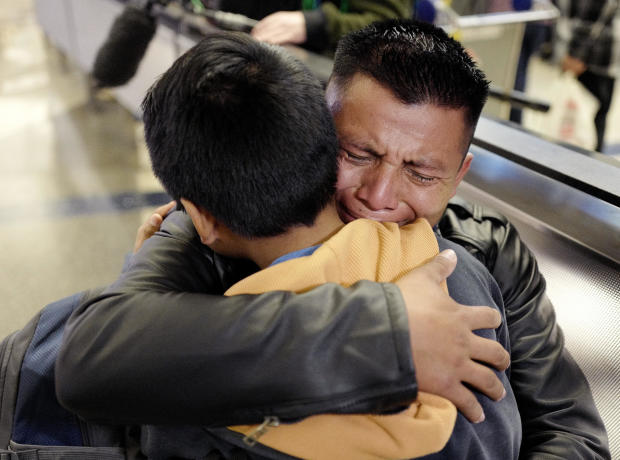

Under the special asylum process envisioned by the settlement, migrant families who were separated under former President Donald Trump would be able to apply for asylum before U.S. Citizenship and Immigration Services, or USCIS, instead of having to plead their cases in a courtroom before an adversarial Justice Department immigration judge. USCIS employees would also be instructed to consider the trauma the families suffered as a result of the separations while reviewing their asylum cases. Asylum applicants who successfully prove they fled persecution in their home country based on certain factors such as their politics or religion, can be granted permanent legal status in the U.S. Families covered under the agreement would have access to government-funded housing benefits, legal counsel and medical and mental health services.
The proposed settlement, however, does not include monetary compensation, which some separated families have been seeking in federal courts across the country. While the Biden administration initially considered offering families reparations, the proposal was scrapped after strong Republican opposition. The administration has since argued in federal courts that these families do not qualify for compensation. Lee Gelernt, the ACLU lawyer representing separated migrant families in the class-action suit, said the agreement with the government would give his clients "a meaningful opportunity to seek lawful status." It would also, he said, prohibit "a future administration from reenacting another zero tolerance separation policy." "Nothing can make these families whole again or eliminate the moral stain of this policy, but this is an important start," Gelernt added.
Faced with bipartisan uproar, Trump ended the practice of systematically separating migrant families in June 2018, more than 5 years ago. But the policy, in many ways, is still being unwound. The question of whether families affected by the policy deserve financial restitution, which has garnered controversy, is still being weighed by federal courts across the U.S. as families pursue individual lawsuits. The ACLU, other advocacy groups and the Biden administration are also trying to track down some of the hundreds of parents who were deported from the U.S. after being separated from their children. As part of the proposed settlement, the Biden administration agreed to continue its efforts to locate and reunite families who were separated by U.S. border officials. An interagency task force created by President Biden soon after he took office in early 2021 has reunited around 750 families, allowing parents who were deported without their children to return to the U.S. The government has agreed to continue offering these parents three-year work permits and deportation protections under the humanitarian parole authority.
The ACLU estimates that between 500 and 1,000 migrant children split from their parents during the Trump administration still remain separated from their families. Despite years of calls and on-the-ground searches in Central America, the organization has struggled to contact all those affected by the Trump policy, including because of shoddy record-keeping by the government at the time.
Camilo Montoya-Galvez is the immigration reporter at CBS News. Based in Washington, he covers immigration policy and politics.